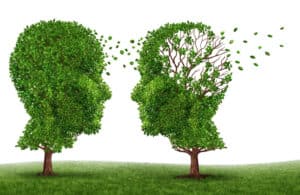
Loneliness and Mental Health
According to www.mind.org.uk, “Feeling lonely isn’t in itself a mental health problem, but the two are strongly linked. Having a mental health problem can increase

Do you sometimes forget where you put your keys or the name of someone you recently met?
Maybe you’re having trouble remembering the name of the street your high school was on or how a movie you saw last year ended.
If this happens to you, you are not alone. Memory fails as people age. Scientists have found multiple reasons why memory fades, including errors in making memories and retrieving them.
Experts believe there are three stages to experience becomes a memory:
• Sensory Stage
• Short-Term Stage
• Long-Term Stage
When you have an experience, the first way it becomes part of your memory is through your senses. You see, hear, taste, smell, and feel all contribute to what you might remember. The stronger  the sensory input, the more likely it is that the memory will move to the next stages.
the sensory input, the more likely it is that the memory will move to the next stages.
Your mind remembers your experiences for a short time. On average, your experiences stay in your short-term memory for 15 to 30 seconds. If the incident has a high sensory input and repeated using or thinking about it, the memory moves to the long-term storage in your brain.
Humans are exposed to approximately 34 gigabytes of information and experiences each day. Your brain doesn’t need to remember everything you experience because much of it is random or unrelated to you. The stages of memory act as gatekeepers, deleting unnecessary memories at each period. Otherwise, your brain’s storage space would overload with useless information.
Researchers at the College of Medicine, University of Florida, found that making new memories and recalling old ones can get blocked. You might think your memory is failing, but it’s a lack of moving the memory to long-term storage or a disconnect in retrieving the information later.
The following could block memory (scientists detected):
• Distractions
• Overload
• Lack of Use
• Retrieval Cues Mismatch (context-dependent failure)
When you are making a memory to learn something new, your brain needs to focus on it. Distractions interrupt the process and keep some of the information from becoming long-term memories.
The more distractions there are, the less likely you will remember everything you’re trying to learn. If the phone keeps ringing while you are answering emails, you may not register all the information in an email you read because your brain was distracting by your conversations.
The same holds for routine daily tasks, like where you put your glasses. If you set them down while watching TV, feeding the dog, and talking on the phone, your brain may not be focused enough to remember where you left them.
Overload is when your brain can’t keep up with everything you’re trying to make into a memory. When you overload your working or short-term memory, not everything will move to the long-term memory stage, and you will not remember where you left your glasses last night.
As humans age, they repeat behaviors and patterns. Bits of information from years ago may be harder to access in memory because they aren’t part of a routine and haven’t been used or thought of in a while. Knowing the route you took to get to grade school may have been necessary at one time, but later in life, when you no longer use that information regularly, the memory starts to fade.
Your brain stores memories in an organized pattern where each piece of information relates to something similar. When you’re trying to remember something but can’t think of it, the retrieval cues you’re using may not match how your brain stored the information. If you look at a picture but can’t remember the person’s name, your brain may have stored the sound of their voice or what they told you about their job without moving their physical appearance into the same place in your long-term memory. If you likened how they looked with how your cousin or a friend of yours seems, you may remember the wrong name or have trouble finding the right one.
When your memory fails, it may be part of the normal process of storing what is essential and what isn’t. Memories can get blocked when you are busy or distracted and can be hard to recall if you don’t use them often.

According to www.mind.org.uk, “Feeling lonely isn’t in itself a mental health problem, but the two are strongly linked. Having a mental health problem can increase

If you’re someone who feels alone often, you might be wondering if your loneliness is normal. Many people sometimes feel lonely, but loneliness is a

Sedentary Disease and Its Impact on Human Health Sedentary disease, which is more commonly known as sitting disease, is a rapidly growing issue in today’s